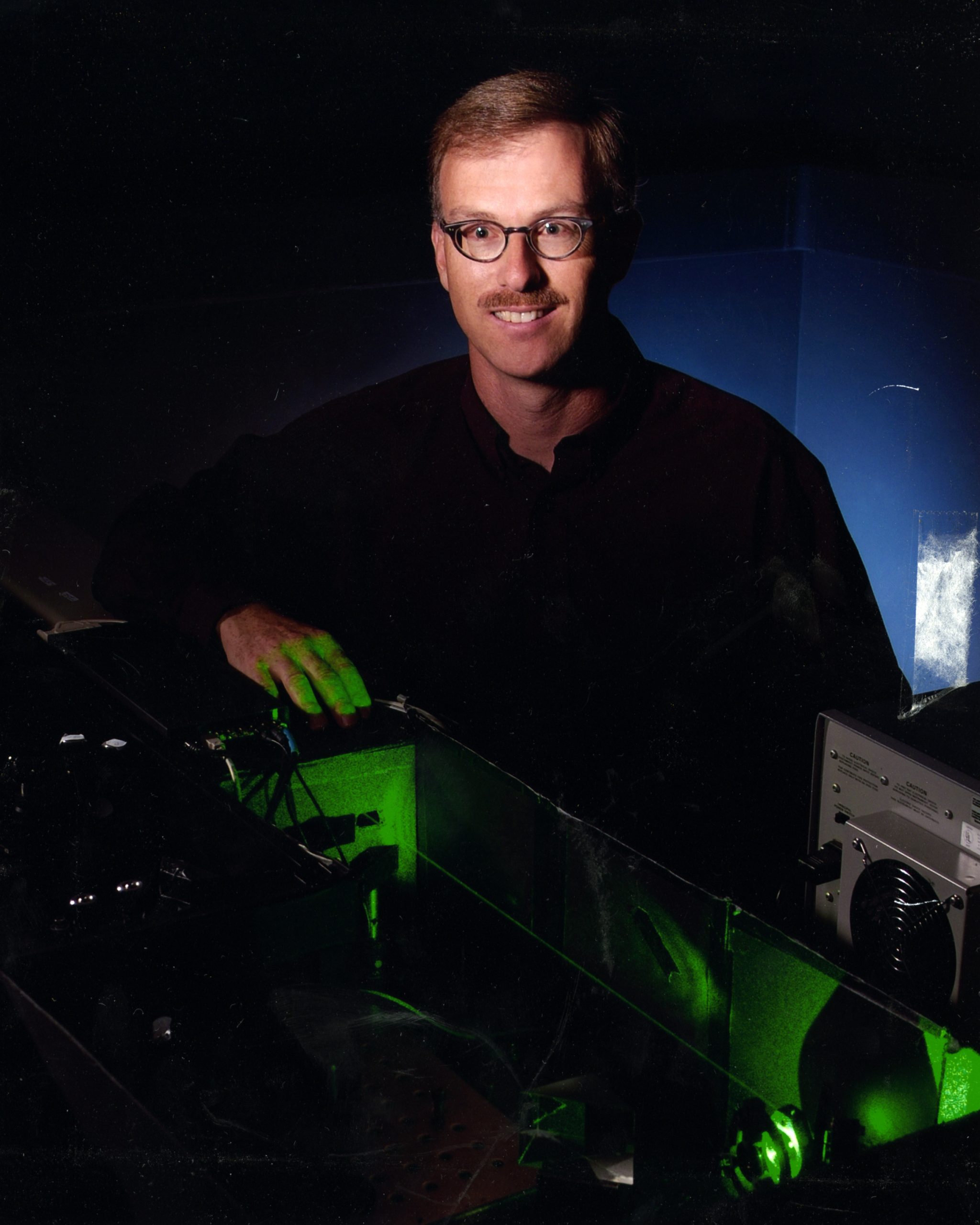Choosing the Carlson winner is a difficult task, because there are many worthy teachers at Gustavus. However, there 1s no doubt that this year’s winner is a deserving one, regarded as exceptionally skilled and exceptionally effective by students and col leagues alike.
Here are some comments from students: “A wonderful teacher.” “An excellent teacher.” “The most competent and creative teacher I have had so far at Gustavus.” “The best teacher I ever had. ”
And cornn1ents from colleagues: “Admired and respected by students and colleagues alike.” “A remarkable record of excellence as a teacher, researcher, and faculty leader.” “One of the best teachers I have ever known.”
What makes this person an excellent teacher? Comments from students, colleagues, and the man himself (for it is a man) suggest four things:
First, preparation. As one of his colleagues attests, “His preparation for class is characterized by long hours of work, lectures impeccably written and delivered, and an appropriately assigned and promptly graded body of homework.”
Second, organization. Student after student comments on this teacher’s remarkable ability, in lectures, research projects, and conversations, to take complex tasks and subjects and break them into clear sequences and comprehensible elements. According to one, “He has a remarkable talent for being able to make difficult problems manageable.”
Third, inspiration. This is clearly a teacher who loves his subject and loves teaching it-and his enthusiasm is infectious. Listen again to his students: “It is easy to tell even after only one lecture that he has a deep love for what he teaches and teaching itself.” “His lectures are always interesting, thought provoking – they make you want to learn.” “He inspires you … in new and innovative ways that al low you to connect the specific knowledge to general principles.” “He taught us to think, to learn, to be better students.”
Fourth, mentoring. Gustavus, he says, is truly about the students. And his attitude is readily apparent to them and to his colleagues. Says one colleague, “Students are eager to take a course from him, not because they think it will be easy, but because they know they will learn a great deal from a mentor who is extremely knowledgeable, who will hold them accountable to learn and to achieve, and who will be there for them whenever and however they need help.”
Prepared, organized, enthusiastic, caring-and a pretty funny guy-these are the characteristics of Professor of Physics Paul Saulnier.
Paul received his bachelor of science in physics and electrical engineering, magna cum laude, from the University of Hartford, graduating in three years. After working for two years in the aerospace division of General Electric, where at the age of 21 he served as lead project engineer for a $2 million research and development program, he returned to academia and has never looked back. He received his M.S. and Ph.D. from the University of Delaware, then spent two years at Carroll College in Wisconsin before joining the Gustavus faculty in 1993.
At Gustavus he has taught nearly all the courses in the Department of Physics, ranging from general physics to quantum mechanics, as well as a January Tern1 course on the “History and Art of Science Fiction Film” and a First Term Seminar that explores the relationship between science and science fiction.
His research program is described by colleague Chuck Niederriter as “incredible and awesome.” Since obtaining external funding to implement an advanced optics teaching laboratory, he has developed three research programs, one concerned with the study of light propagation in highly scattering media, another with investigations into Riccati differential systems, and a third, in collaboration with biologists, on the subject of swarms in nature. ln carrying out these programs, Paul has worked with more than 30 different undergraduate research associates, many of whom have gone on to successful careers of their own. Listen again to Professor Niederriter: “Always the teacher, Paul uses the research Jab experiences of his students to teach them about the life of a scientist (and life in general).”
Paul himself has said, “If I just wanted to ‘do physics’ or ‘earn money,’ Gustavus is not where I would be, for I certainly could have chosen other career paths that would have offered me more of each of these. I am at Gustavus because I feel a strong personal sense of service. Here I have the opportunity to serve students, colleagues (both inside and outside of the physics department), my profession, and my own curiosity.”
President Peterson, members of the Board, faculty, guests, and, most of all, seniors of the Class of 2006: it gives me great pleasure to introduce the winner of this year’s Edgar Carlson Award for Distinguished Teaching: Professor of Physics, Dr. Paul Saulnier.
Presented by Rob Gardner
Professor of Theatre and Dance
2005 Recipient of the Edgar M. Carlson Award

Leave a Reply
You must be logged in to post a comment.